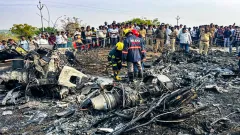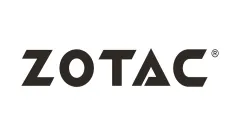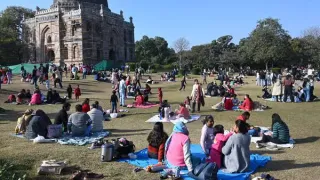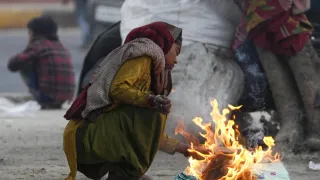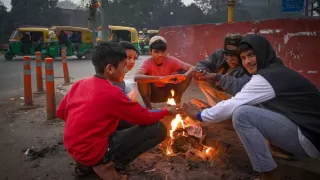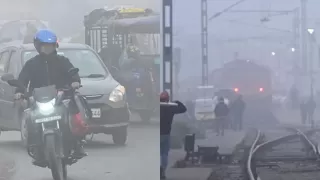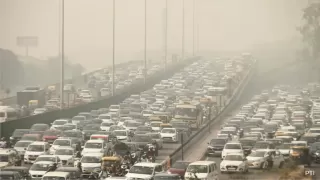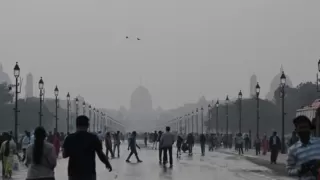Delhi is bracing for stricter anti-pollution measures as air quality in the national capital continues to decline sharply. The Commission for Air Quality Management (CAQM) has revised its rules under the Graded Response Action Plan (GRAP) to curb further deterioration. With winter setting in and pollution levels surging, authorities are taking proactive steps to protect public health and reduce environmental hazards in Delhi and the surrounding National Capital Region (NCR).
The revised regulations aim to strengthen preventive measures at an earlier stage of pollution, bringing more stringent actions into effect sooner than before. Citizens are being advised to follow official guidelines, while state and municipal authorities are tasked with implementing new restrictions effectively. The move comes in response to rising AQI levels, with the capital recording a very poor air quality index of 360 on Monday morning.
The new GRAP revisions focus on reducing human exposure to pollution through staggered work timings, remote work protocols, and limitations on outdoor activities. These measures aim to alleviate the strain on public health while managing pollution sources more efficiently. The CAQM has emphasized immediate implementation of the revised rules across all NCR regions, signaling the seriousness of the air quality crisis.
GRAP Rule Revisions and Implementation
The Graded Response Action Plan (GRAP) provides a framework for timely and targeted actions to address air pollution. The latest revisions have moved certain GRAP-IV stage measures to GRAP-III, which is currently in force in Delhi due to the AQI exceeding 400. This means stricter curbs will now apply at slightly lower pollution levels, enabling authorities to act faster to mitigate health risks.
Under the revised plan, state governments in the NCR must decide whether to allow public, municipal, and private offices to operate at 50% capacity, with the rest of the workforce working from home. The central government may also issue guidelines for remote work in federal offices. Similar revisions have been applied to lower GRAP stages, enhancing preventive measures for very poor and poor air quality levels.
Impact on Work and Education
One of the major impacts of the new rules is on office operations and schooling. With the onset of winter and pollution intensifying, staggered work timings and partial work-from-home policies are expected to reduce vehicular emissions during peak hours. Schools and colleges have also been affected; the Delhi government has postponed physical sports events scheduled for November and December to protect students from exposure to hazardous air quality.
The CAQM has directed all agencies responsible for implementing GRAP to strictly follow the revised schedule and ensure timely execution of measures. Citizens are advised to stay informed about AQI updates and adhere to public health advisories, including limiting outdoor activities and using masks when necessary.
Air Quality Index and Health Risks
The Central Pollution Control Board (CPCB) categorizes air quality into six ranges: 0-50 (good), 51-100 (satisfactory), 101-200 (moderate), 201-300 (poor), 301-400 (very poor), and 401-500 (severe). Delhi’s recent AQI readings falling in the “very poor” category highlight the urgent need for preventive measures. Extended exposure to such pollution levels can trigger respiratory illnesses, aggravate chronic diseases, and affect vulnerable populations including children and the elderly.
The CAQM has emphasized that immediate action is crucial to prevent further escalation. Authorities are expected to monitor pollution sources, enforce vehicular restrictions, and regulate construction activities while encouraging public cooperation in minimizing outdoor exposure. These coordinated efforts aim to mitigate the adverse health impacts and improve the overall quality of life for residents of Delhi and the NCR.
Transport and Mobility Measures
Revisions under GRAP include transport-focused interventions aimed at reducing vehicular emissions. Public transport services may be augmented to encourage the use of buses and metro systems while discouraging private vehicle usage. Certain areas may see temporary traffic restrictions, particularly for high-emission vehicles, to reduce peak-hour congestion and pollution levels.
Additionally, work-from-home policies for government and private offices are intended to decrease daily commutes, indirectly reducing vehicular emissions. Staggered office timings are also part of the strategy to flatten peak-hour traffic and lower pollution spikes during high-risk periods.
Citizen Awareness and Advisory Measures
The success of the revised GRAP rules depends heavily on public cooperation. Citizens are advised to monitor AQI updates via official sources and follow health advisories. Use of N95 masks, limiting outdoor exposure, and avoiding outdoor sports or strenuous activities during high AQI days are strongly recommended. Public awareness campaigns are expected to run across media platforms to ensure that residents understand the severity of the situation and act responsibly.
The CAQM has highlighted that these preventive measures are designed not only to manage current air pollution but also to build long-term resilience against seasonal pollution spikes. Coordinated action between government agencies, private organizations, and citizens is essential to protect public health and reduce environmental risks.
Conclusion: Moving Towards Cleaner Air
Delhi’s worsening air quality has prompted urgent and unprecedented regulatory action. The revised GRAP rules signify a proactive approach to pollution management, aiming to reduce human exposure, mitigate health risks, and curb pollution at an early stage. With immediate implementation, enhanced monitoring, and public cooperation, Delhi hopes to navigate the winter season with improved air quality and reduced health hazards.
Authorities continue to stress the importance of sustained efforts, both from the government and the public, to ensure that the city can tackle seasonal pollution more effectively in the future. As winter progresses, the coordinated enforcement of stricter anti-pollution measures remains critical for safeguarding the health and well-being of Delhi’s residents.
Also Read: Trump Stuns with Praise for NYC Mayor Mamdani: Full Story









